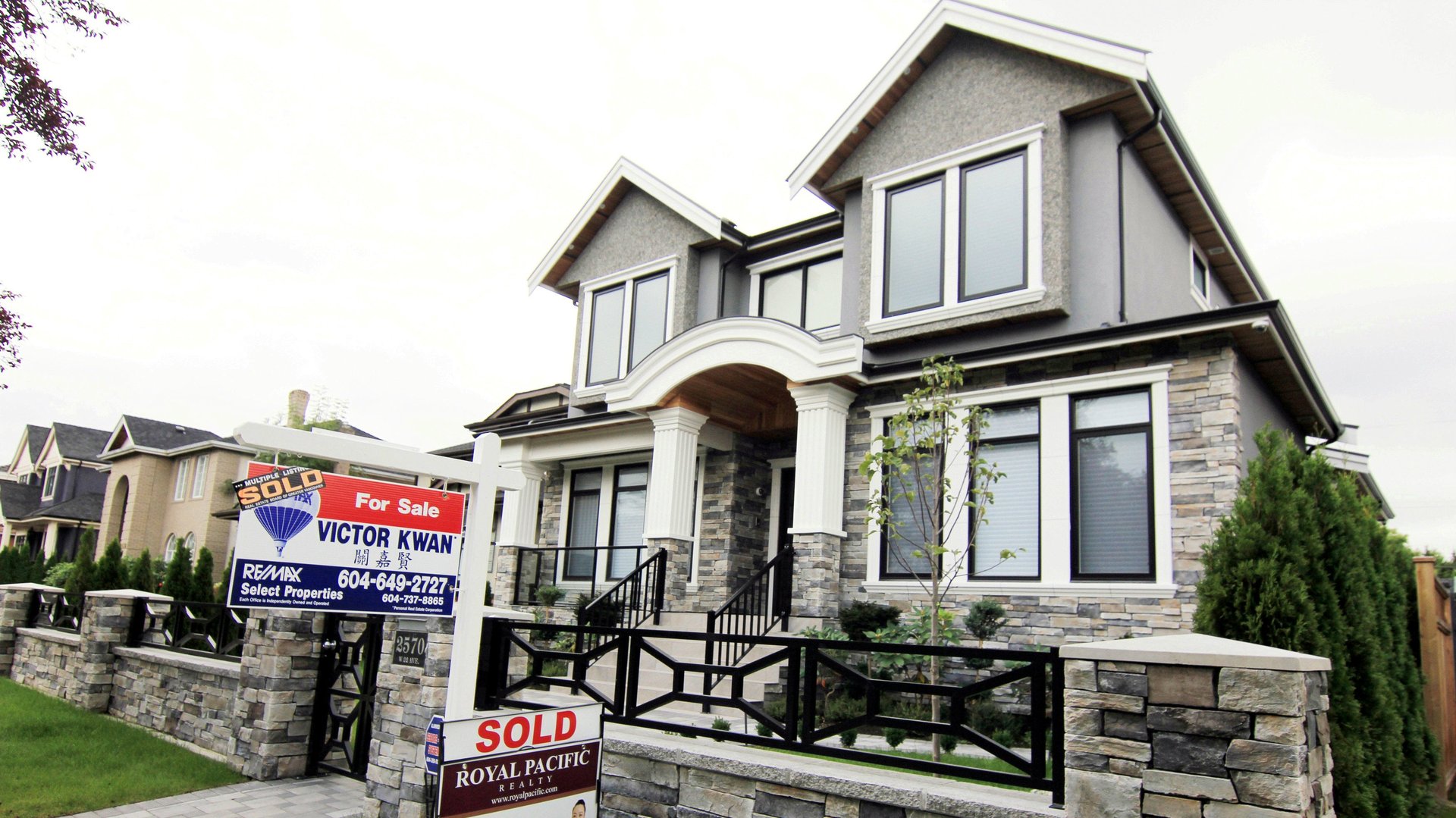In the struggle to get its red-hot housing market under control, Vancouver targets Chinese buyers
A year and a half after Vancouver imposed a 15% tax on foreign home buyers, the regional government is once again raising the barriers for out-of-town investors as property prices accelerate.


A year and a half after Vancouver imposed a 15% tax on foreign home buyers, the regional government is once again raising the barriers for out-of-town investors as property prices accelerate.
The Canadian city has one of the hottest property markets in the world, and early last year the tax (and other measures to restrict domestic lending) seemed to cool down the market. The hope was that the tax would deter overseas buyers—including many Chinese—who were taking advantage of the weak Canadian dollar to purchase investment properties. But in the past five months, year-over-year house price gains have returned to double-digit percentages.
The new measures suggest the government continues to place the blame on Chinese buyers. Last July, the New Democratic Party (NDP) came to power in British Columbia after a hotly contested election and a no-confidence vote in the previous governing party. Clinging to power in a minority government, the NDP’s left-leaning lawmakers are trying to make good on big campaign promises to make housing more affordable in their first budget, published this week (pdf).
From today, the tax for foreign buyers has been increased to 20% and expanded to other regions in the province, including the capital Victoria. Other new taxes have been introduced on some of the region’s pricier homes.
A “speculation tax,” which will be introduced later this year, will target foreign and domestic investors who don’t pay income tax in British Columbia and don’t live in the homes they buy. The tax also applies to so-called satellite families, a term often used for Chinese families where the non-working spouse and children live abroad (in Canada, say) while the income-earning spouse remains at home (in, for example, China).
The budget also asks for federal assistance to tackle alleged links between money laundering, the housing market, and Asian gamblers and drug dealers.
What difference these measures will make on house prices isn’t clear. The slowdown in house prices after the foreign-buyers’ tax was initially introduced proved temporary. Data from the provincial finance ministry suggests that only around 3.1% of real estate purchases in Vancouver in recent months went to buyers who weren’t Canadian citizens, permanent residents, or didn’t have work permits.